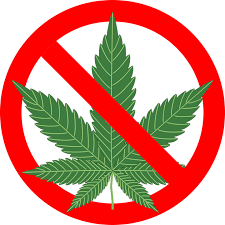By JULIE DOSTAL
This is not your parents’ weed. Information and data from states that have legalized marijuana should give New Yorkers reason to pump the brakes on taxed, regulated recreational use. Legalization of the 2020 version of cannabis is not about consenting adults discretely smoking a joint in the privacy of their home.
 It is about an industry-driven, full-on commercialization with pot shops, pot advertisements, pot sponsorships, and pot fundraisers. All of these to sell pot brownies, gummies, cookies, vapes, sodas, infused wines, distillates, concentrates, ointments, and vapes. If we legalize cannabis for recreational use, prepare to be inundated with highly concentrated cannabis products that do not remotely resemble the weed most readers might remember.
It is about an industry-driven, full-on commercialization with pot shops, pot advertisements, pot sponsorships, and pot fundraisers. All of these to sell pot brownies, gummies, cookies, vapes, sodas, infused wines, distillates, concentrates, ointments, and vapes. If we legalize cannabis for recreational use, prepare to be inundated with highly concentrated cannabis products that do not remotely resemble the weed most readers might remember.
We as a community need to view legalization with eyes wide open. This is about a billion dollar industry whose primary concern is NOT your health or the health of your children. It is about dollar signs in an untapped market. There are multiple promises that the industry and its advocates have touted related to the commercialization of the drug. The public should know that nearly all of the industry’s public health promises have been disproven in the states that have legalized recreational use.
Examples include:
Promise: Youth use rates will go down
Reality: Youth rates of cannabis use are increasing
Promise: The black market will disappear
Reality: Black markets are thriving in legal states by selling street pot cheaper than taxed pot
Promise: Social justice issues will be resolved and fewer minorities will be arrested
Reality: Arrest rates for minorities are disproportionate in legal states and increasing
Promise: The cannabis supply will be safer
Reality: Commercialized cannabis, up to 99.9 percent THC, is a drug with far more harms than the 5 percent THC version of pre-legalization
Promise: Legal marijuana will make people safer
Reality: Marijuana-related traffic fatalities have increased significantly in legal states
Promise: People cannot become addicted to marijuana
Reality: Cannabis Use Disorder (Addiction) is an actual diagnosis
Promise: Legalized marijuana will reduce death from opioid overdose
Reality: This early assumption was disproven by a 2019 study.
Revenue projections are also not as promised. None of the NY tax-bonanza predictions include the costs associated with police for increased traffic enforcement, hospitals for increased emergency room visits, government departments for increased oversight, poison control for increase calls for pediatric consumption, businesses for diminished job performance, or mental health for increased incidences of psychosis (all of these have occurred in legal states). Those are not costs that will be borne by the billion dollar cannabis industry. Those are costs that will land on tax payers. In Colorado, tax payers spent $4 to mitigate the cannabis-related harm for every $1 gained in tax revenue. But, those numbers don’t make national news.
Let’s pump the brakes, New York. Our youth, our health, our traffic safety and our mental health are far more important than a questionable revenue stream. We did the right thing last year with decriminalization. The next step does not have to be opening the doors to a billion dollar industry whose entire job is to make stockholders happy. Commercialization does not have to be inevitable.
Julie Dostal is executive director of The LEAF Council on Alcoholism & Addictions, Oneonta.

No comments:
Post a Comment